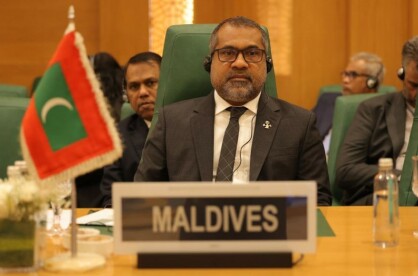In the intricate fabric of governance,
ministers play a pivotal role as custodians of various governmental sectors,
entrusted with steering the nation towards progress and prosperity. However, a
recurring challenge on the global stage is the lackadaisical approach adopted
by some ministers, forsaking their duties for ceremonial engagements.
The
Maldives, like many nations, grapples with this issue, where ministers are
perceived more as figureheads than knowledgeable leaders actively guiding their
ministries. The recently elected President Mohamed Muizz, recognizing the need
for reform, has pledged to scrutinize ministerial performance, signaling a
potential end to the era of ministerial complacency.
Ministers, by virtue of their high-ranking
positions, are entrusted with ensuring the smooth functioning of their
respective ministries. Regrettably, it has become a common narrative to witness
ministers merely attending meetings and events, relegating the bulk of the
workload to their administrative staff. This not only undermines the essence of
leadership but also perpetuates the notion that ministers are more interested
in the trappings of power than in effecting tangible change.
As ministers eschew their responsibilities,
public perception of these esteemed positions diminishes. The disconnect
between the public's expectations and the actual performance of ministers
creates a chasm that erodes trust in the government.
Ministers, who are meant
to exemplify excellence and commitment, instead become symbols of inefficiency,
indulging in state-funded trips that yield little benefit for the nation. This
disheartening trend not only tarnishes the reputation of individual ministers
but also compromises the overall efficacy of the government.
President Mohamed Muizz's commitment to
evaluating ministerial performance is a commendable step towards restoring
accountability. In a nation where the government's effectiveness hinges on the
dedicated efforts of its ministers, it is imperative to ensure that these
leaders are not merely symbolic figures but active contributors to national
development. By holding ministers accountable, the government sends a powerful
message that excellence and commitment are non-negotiable standards for those
in leadership positions.
Beyond the visible impact on public
perception, the laxity of ministers trickles down to the dedicated staff
working tirelessly within the ministries. When leaders exhibit a lack of
commitment, it creates a demoralizing atmosphere that stifles productivity and
innovation.
Conversely, when ministers lead by example, actively engaging in
the decision-making process and championing the causes of their ministries, it
fosters a culture of excellence that permeates through the entire bureaucratic
structure.
President Mohamed Muizz's expansive cabinet
underscores the need for a collective vision, where each minister is an active
contributor to the nation's progress. A paradigm shift is required, wherein
ministers not only fulfill ceremonial duties but also immerse themselves in the
intricacies of policy formulation and implementation. This demands a
recalibration of priorities, with an emphasis on results-driven leadership
rather than symbolic gestures.
While we are yet to see whether these measures
will be implemented in order to hold leaders accountable for the role that they
play in their place of work, this is a first step towards ensuring that even
the workd of ministers and people in leadership position need to be evaluated,
just like they evaluate the workload of thei staff.
This not only creates a
balance in the workplace where hierarchy often means that leaders getaway by
riding off their staff’s hard-work, but it is also an important step needed to
ensure that people in such important roles are deserving of their position as
well.







